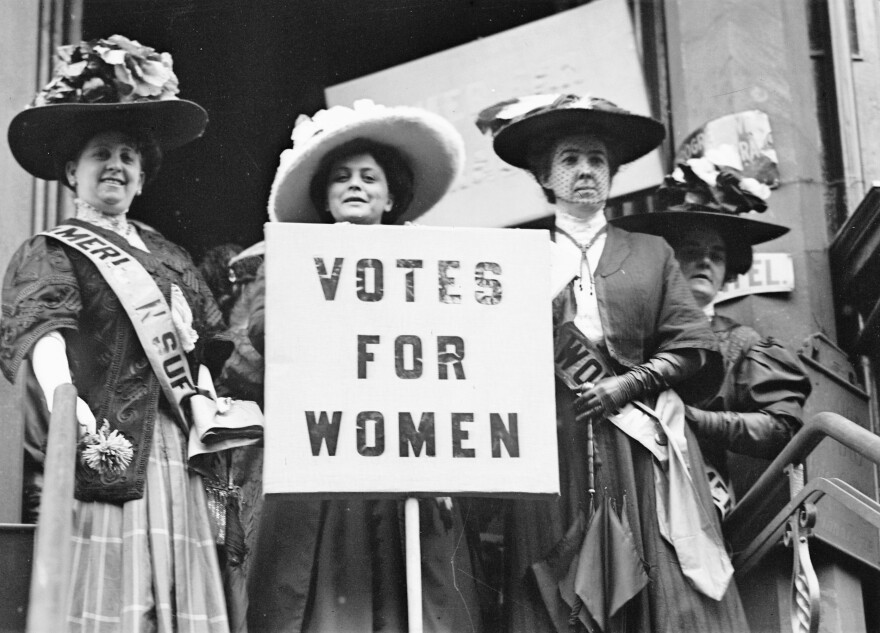The Public Library of Cincinnati and Hamilton County is commemorating this year's 100th anniversary of the 19th Amendment with an exhibit documenting Ohio's role in the women's suffrage movement.
Scholar and co-curator Katherine Durack says the Buckeye State played a crucial but forgotten role.
"Before Seneca Falls, faculty in UC's law school were debating and writing about women's rights," she says. "In fact, in the history of women's suffrage you'll find that Timothy Walker, the founder of the UC law school, is quoted as the key source women are using to understand their legal position."
Critical ratification votes from Wyoming and Tennessee, she says, were influenced by efforts from Ohio. Furthermore, a newspaper that would later be part of what would become the League of Women Voters was founded by Lucy Stone and Henry Brown Blackwell, who met in Cincinnati.
Genius of Liberty: The Long Struggle for Women's Equalityprofiles Ohioans who were part of the movement. It spans from the first women's rights convention in Seneca Falls, NY, in 1848, to the adoption of the 19th Amendment in August 1920.
The name Genius of Libertycomes from the publication of the same name penned by suffragist Elizabeth Aldrich of Cincinnati. It was one of the first feminist publications in the U.S. Several issues of the paper are included in the exhibit.
Despite the monumental nature of the 19th amendment, Durack says it remains under-researched.
"It's a subject that people know very, very little about. It's been very poorly researched up to this point. Just think about (this): The Civil War lasted four years; the women's suffrage movement - conservatively defined - lasted 72. How many books and films are there about the Civil War (and) how many books and films are there about the women's suffrage movement?"
Durack, who also hosts the Genius of Libertypodcast from the Mercantile Library, says the exhibit includes African American suffragists. African American women were part of the movement but were often marginalized or excluded, especially as the need to win ratification votes in the South became increasingly important.
Author and suffragist Anna Julia Cooper published the seminal work A Voice From The South in Xenia, Ohio in 1892. Considered "the mother of black feminism," she's featured in the exhibit and this episode of Durack's podcast.
Cooper's book discusses such issues as women's rights, segregation, racial progress and suffrage. Born into slavery, Cooper went on to earn a Ph.D. from the University of Paris-Sorbonne, becoming the fourth African American woman to earn a doctoral degree.
Copyright 2021 91.7 WVXU. To see more, visit 91.7 WVXU. 9(MDA5NTM4MTIyMDE0MTg3NDc2MTVlZjdmNQ001))





